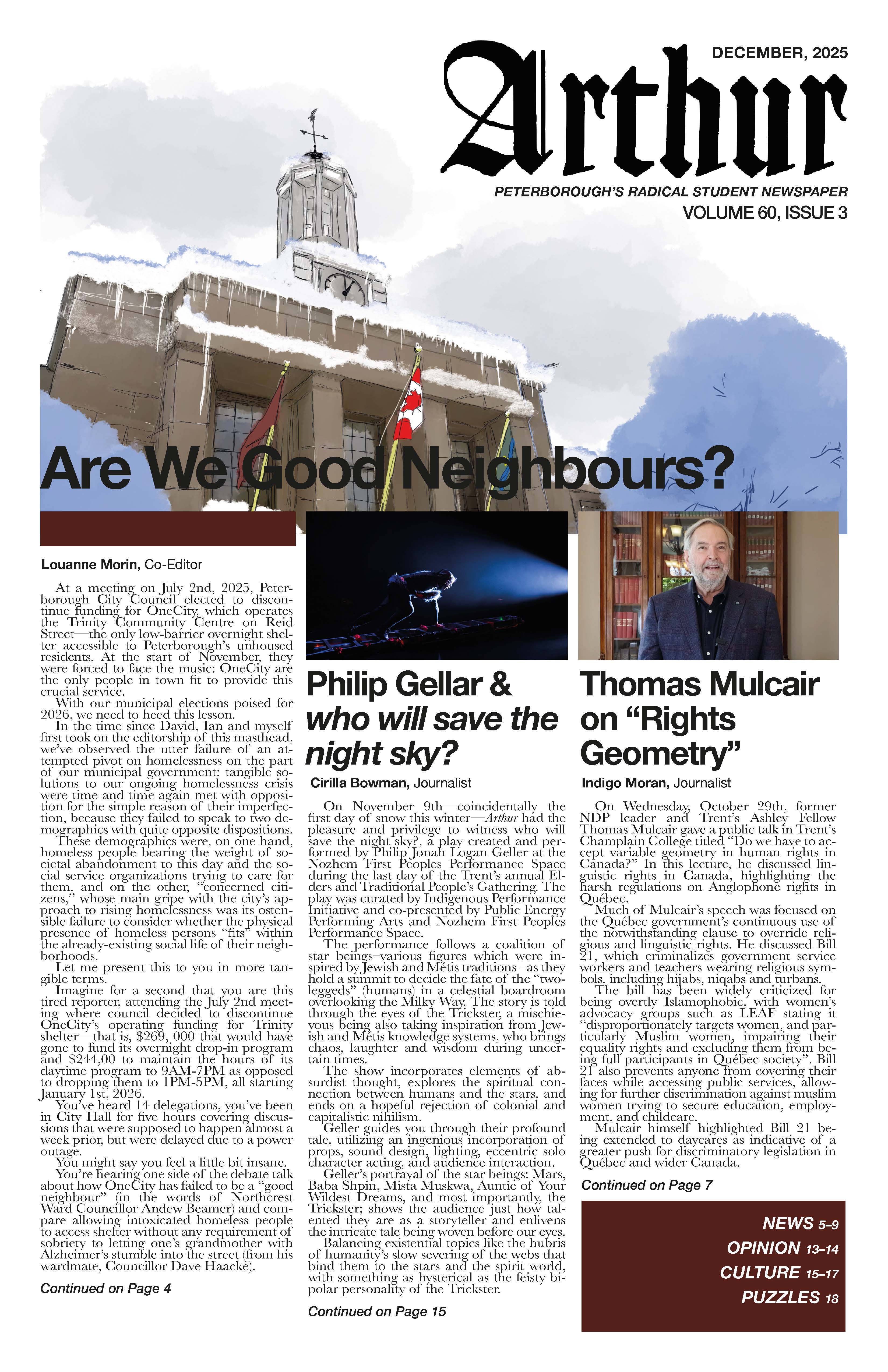I’m a filmmaker, but I’ve also dabbled as a film critic. The practice is still new to me and there are times where exploring such work inspires an uncomfortable sentiment within me. Who am I to critique to a film? My worry is that, given my background, one may take my words as overt judgment and ask, “Well, can you make a better one?” It’s a fair question, but that isn’t the point.
Whether or not you agree with me is none of my concern. This piece is not an arched-back or drunken blog post diatribe. My point of view is one of millions. You can read it, you can ignore it, and you can use the Arthur to start a fire or line your kitten’s litter box, and it doesn’t change my opinion or manipulate my words. My words and the opinions they create continue to exist in the meat cosmos that is my noggin. With that said, I’d like to assume that yours is capable of the same – the creation of independent thoughts and opinions.
Fortunately, I’ve yet to hear anything negative from any of you save for a bit of blame thrown my way for scaring everyone out from Sadlier House, which is haunted by the spirit of its former owners and the horses they slayed, but otherwise things have been peachy. This surprises me.
A lot of people ask my opinion on films. I think it’s their polite way of starting a conversation, knowing my background. I tell them exactly what I think, holding nothing back, and while some are totally fine with the exchange, others seem to be upset with my reply. My words are met with a twisted visage and crossed arms as though last night’s sushi isn’t sitting too well. This confuses me.
I have no qualms over differing opinions. In fact, I welcome them like the woodsy aroma of patchouli. That’s the whole point of opinions; all of us have them and should communicate them. What upsets me is the fact that so many moviegoers are dependent on the thoughts of others to make up their minds.
Sure, I can understand reading the prose written by a skilled reviewer – of which I’m not – to perhaps sway your evening’s movie purchase, as things are getting expensive, but I think it’s ludicrous to take their words to heart in the construction of your own judgment. If you like the movie, great, revel in your enjoyment. Why should my contrasting thoughts or those of others upset the balance of your satisfaction?
To make matters worse a lot of moviegoers no longer care about the written word. It has all come down to numbers. Everyone seems to care about the IMDB score, the Rotten Tomatoes rating, and the Metacritic total. People are taking something that has been built for at least a year, is the work of close to a hundred passionate individuals, and have reduced it to a split-second’s number or a star rating. This is what movies have been reduced to. What’s the fear in watching a movie and creating your own thoughts about it? Are you afraid your money will be wasted? Nonsense – you’ve already torrented it.
Movies cannot be boiled down to numbers. Neither can video games, books, or television shows. You cannot rate a person. There’s simply so much within us that we fail to discover it all by time we die. We’re complex things, humans. So complex that science cannot even begin to explain all of it. Movies are the same. They’re living things that are brought to life in the light. And like people they are subject to opinion. I’m privy to mine, you to yours, and the late Roger Ebert to his.
Numbers aren’t opinions. And though they may be fact in the realm of math and science, they are an insult to the arts. You are an insult to the moviegoing experience to believe in their weight and value in relation to the enjoyment of film. If all you want to do is visit a website and read a number before seeing a movie than you probably shouldn’t be seeing a movie at all. Most are at least an hour and a half and I’m afraid your attention span cannot bear such a burden.
Here’s a challenge for you: avoid the movie trailers, avoid the reviews, ignore the Facebook posts, and go into a movie blind. I assure you that you’ll enjoy it a lot more than you’ll have ever expected, and god forbid you may just come face-to-face with your very own opinion on the matter.
In the meantime, take my opinion on all of this with a grain of salt. Who am I to tell you what to do? If a movie interests you, go and see it, take the risk.


.png)


.jpg)


.jpeg)



.jpg)

.jpg)

.jpg)







.png)